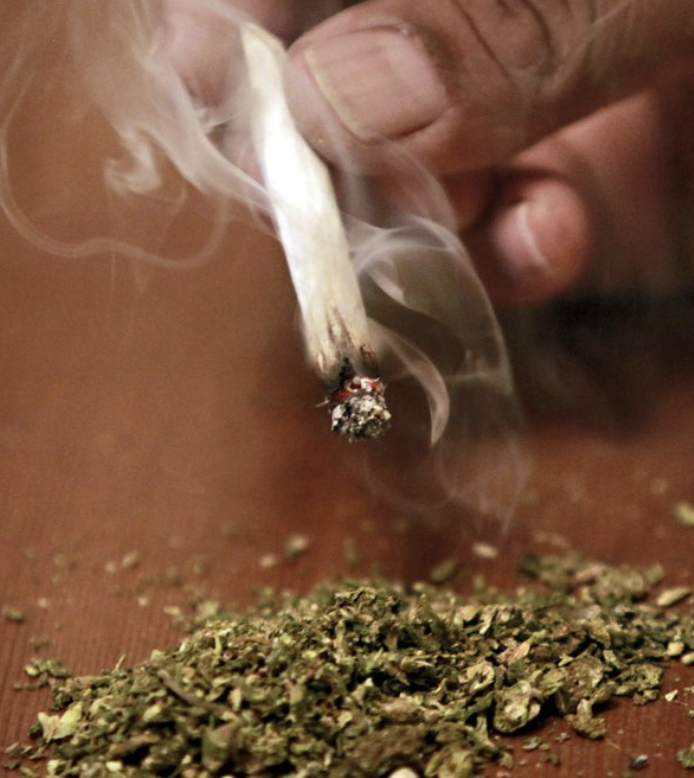Arizona voters to decide on legalizing marijuana on Nov. 3

PHOENIX (AP) — Arizona voters will decide whether the state joins nearly a dozen others across the nation that have legalized recreational marijuana when they head to the polls on Nov. 3.
The measure known as Proposition 207 would let people 21 and older possess up to an ounce of marijuana or a smaller quantity of “concentrates” such as hashish, allow for the sale of recreational marijuana at licensed retailers and for people to grow their own plants.
The measure called the Smart and Safe Arizona Act also levies a 16% excise tax on pot, on top of the standard sales tax that goes to state and local governments.
The proceeds from the excise tax, which the Legislature’s budget analysts estimat e will bring in $166 million a year once the marijuana market matures, would go to community colleges, local police and fire agencies, local and state transportation projects and public health and criminal justice programs. Including state and local sales taxes, the analysis estimates $255 million a year in new revenue.
The measure’s proponents argue it is time for the state to finally rescind its punitive penalties on marijuana, test marijuana being consumed and cut down on crime and costs associated with smuggling and illicit sales.
“At the end of the day we’re going to mitigate the black market, you’re going to make the market safer and you’re going to generate hundreds of millions of dollars of new revenue for programs that all Arizonans support – community colleges, roads, local public safety issues,” said Chad Campbell, chairman of the committee backing the measure. “It’s a win-win for everybody.”
Not so fast, opponents say. They argue the measure, which is backed by the legal marijuana industry, would lock in a new class of businesses that has first dibs at a bonanza of new sales.
“It’s written by, funded by and will benefit big marijuana,” said Lisa James, spokesperson for the group opposed to the measure, Arizonans for Health and Public Safety. “It’s not about decriminalization or legalization – it’s about money.”
James argues that existing medical marijuana dispensaries are first in line for licenses, although there are some set aside for groups without licenses.
Opponents raise a number of other issues, including the possibility that legalizing pot will lead more children to use the drug, increased costs of hospitalizations and other health care, the chances that workplaces will become less safe and roads filled with stoned drivers.
“One, it’s bad for our economy, two, it’s bad for our kids, three it’s going to make our roads more dangerous, and that’s just for starters,” James said.
Opponents include the Arizona Chamber of Commerce and Industry and many Republican elected officials, including Gov. Doug Ducey.
“Arizona has a bright future, but fully legalized marijuana doesn’t need to be part of it,” Ducey said in a statement distributed by opponents of Proposition 207.
James points to changes the measure makes to the state’s impaired driving laws. Currently, people can be convicted of DUI if they have any level of marijuana “metabolites” in their system. Those chemicals can be detected as long as a month after someone uses, meaning that finding them doesn’t mean someone is impaired.
Campbell acknowledged that the proposition removes that legal standard, but argued it is unfair and noted that the measure leaves in place laws that allow law enforcement to do impairment tests similar to those used to screen for alcohol intoxication. And he noted that the measure allows the Legislature to adopt new tests approved by federal health officials if they are developed.
“We just mirror current DUI laws in terms of impairment,” Campbell said. “Its really one of the strongest laws in the nation as far as DUI.”
Campbell also noted that Arizona is the last remaining state that allows felony charges for first-time possession of small amounts of marijuana.
“That’s ludicrous – we’re so out of the touch with the rest of the country,” Campbell said.
“At the end of the day the opposition is just engaging in fearmongering,” he said. “That’s all they’ve ever done. They misrepresent the data, they misrepresent facts, and quite frankly they’re just trying to scare people with their outrageous lies and claims.”
People with past convictions for simple marijuana possession would be allowed to petition the courts to have the convictions expunged if Proposition 207 passes.
Eleven states have legalized marijuana, including California, Oregon, Washington, Nevada and Colorado. In addition to Arizona, voters in South Dakota, New Jersey and Montana will see measures on legalizing recreational marijuana on their November ballot.
Arizona voters narrowly rejected a previous legalization effort in 2016. If Proposition 207 passes on Nov. 3, marijuana will become legal when the election results are certified about a month after the election. Retail sales could start in May.